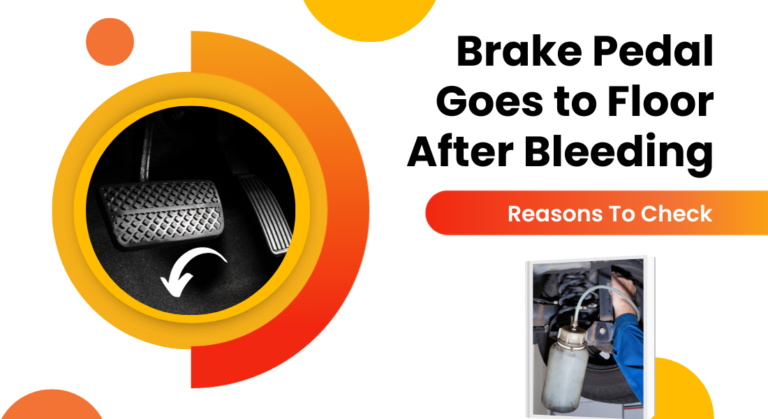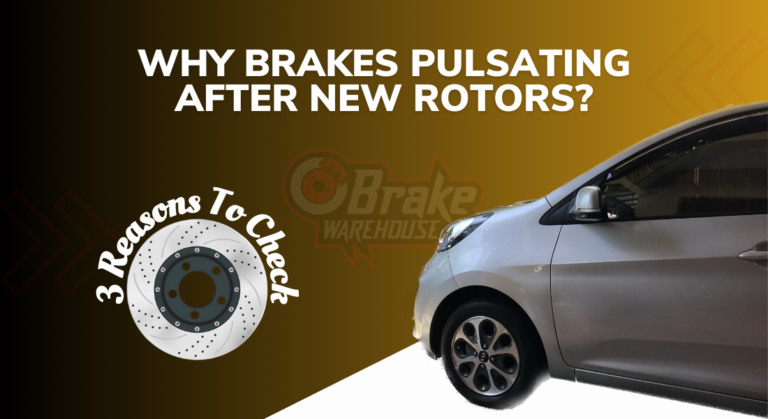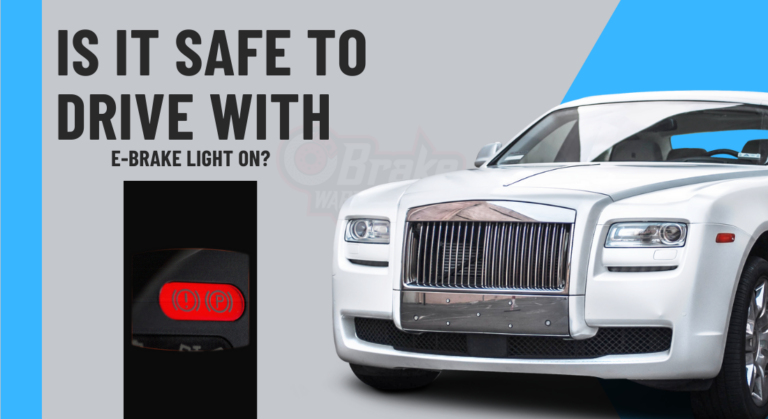When or How Often to Replace Brake Rotors?(Common Signs)
Brakes are designed to experience wear and tear. Yes, you heard it right! Your brake rotors are engineered to require replacement eventually. So, how often to replace the brake rotors?
Brake rotor replacement frequency varies. Generally, they are replaced every 30,000 to 70,000 miles (48,000 to 112,000 km). Factors such as driving habits, road conditions, and maintenance influence this. Regular inspections during routine servicing help determine the appropriate replacement timing based on wear and condition.
I examined the indicators suggesting replacement or resurfacing of the rotors. Additionally, I explored the recommended replacement frequency and potential costs. Continue reading.
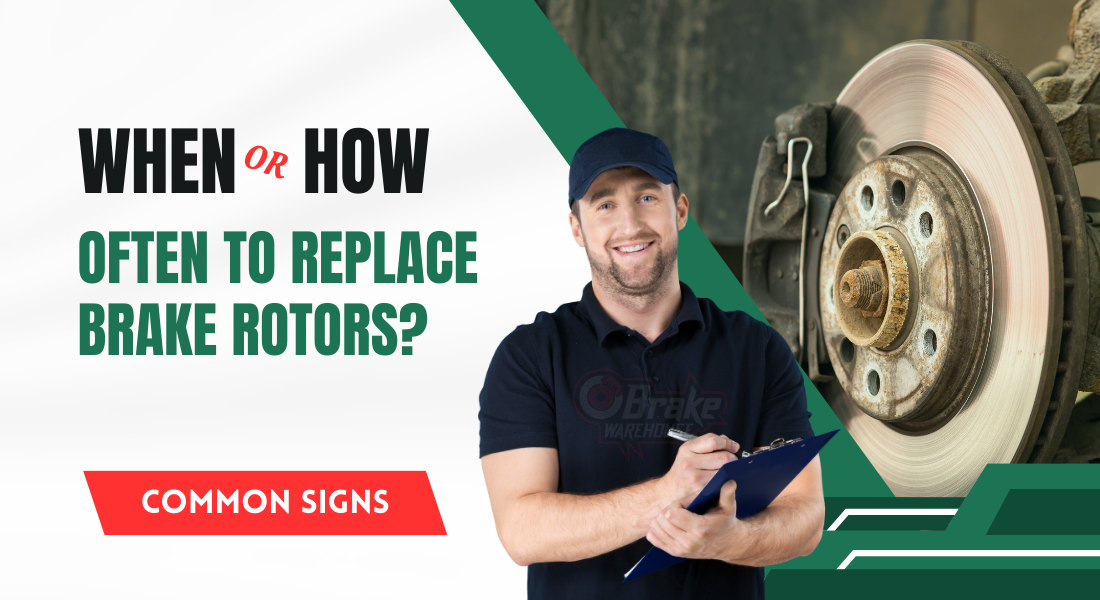
How Often to Replace Brake Rotors? (Considerations)
Under regular maintenance, with good driving style, brake rotors’ service life is an average of 70,000 miles. Before replacing, consider checking the condition of your brake rotor. Visual inspection is the best option to know when the replacement is required.
However, you may need to replace the brake rotors before the schedule for the below factors.
- Usage: If you frequently drive your car in stop-and-go conditions, the brake rotor will wear down faster than you think. Continuous starting and stopping creates an excess strain on the brakes. Such acts also damage the brake pads and other parts. The reason is they have to function harder than usual.
- Driving Style: Do you drive aggressively? Aggressive driving style can also minimize the lifespan of brake rotors. For instance, hard braking generates additional stress on the brake rotors. Overall performance and life are significantly reduced for hard brakes.
- Poor Maintenance: You mustn’t escape regular maintenance. If you do so, your brake rotors’ condition will be bad soon. Check the condition of the brake rotors according to the manufacturer’s recommended schedules. Make sure the brake rotor is not too much warped or damaged. If you notice any sign of wear and tear, take steps accordingly.
When You Should Replace Brake Rotors? Common Signs
Key indicators that signal the need for brake rotor replacement encompass:
- Brake-induced vibrations
- Unpleasant braking noises
- The presence of cracks on the rotors
- Evident damage or grooves
Below are the other clues aiding in the determination of when to replace your brake rotors:
Grinding
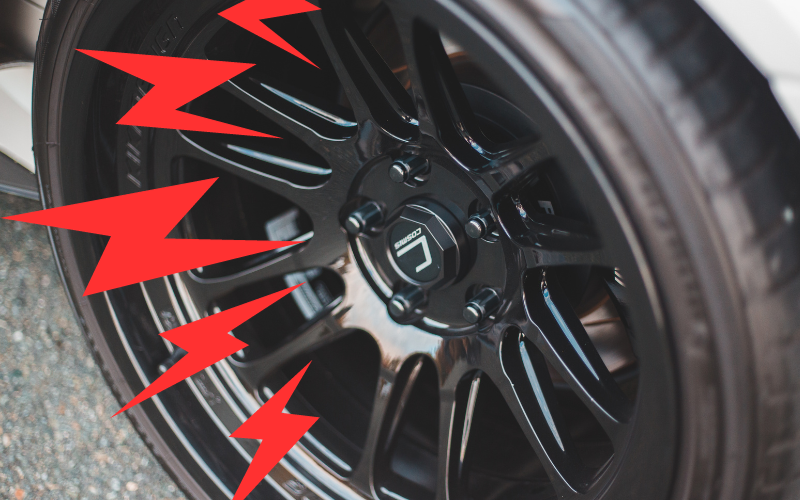
Generally, brake rotors don’t create sound when you brake the car. After pressing the brake, if you hear a loud grinding noise from your brakes, be sure there is some problem with the brake rotors. The sound also tells that the brake pads are damaged, causing metal on metal with your rotors.
In this case, replacing the brake pads will not be beneficial. The reason is you will experience the same problem within a short time. The old rotor will chew the pads, and you must re-visit the brake shop.
Read Also: How Long Can You Drive On Grinding Brakes? (Is It Safe)
Pulsing
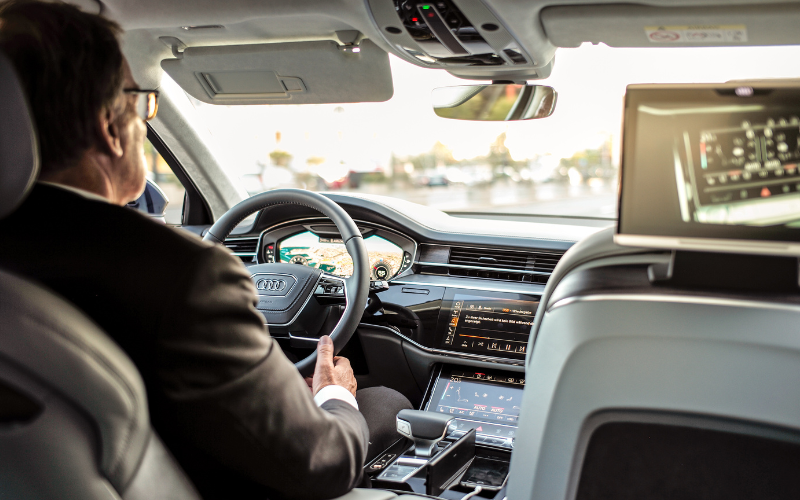
While driving, are you experiencing the car going over a ton of small speed bumps?
If yes, the rotors are warped.
The warped rotor disallows the brake pad to stick to the rotor. As a result, the pad grips the rotor rarely, and you experience the pulsation coming from the car brake.
Turning the rotor might be possible; replacement is the best solution. If you turn the rotor without replacing it, its heat dissipation capability reduces. Thus, the rotors heat up quickly causing faster wear and tear of the pads.
Pulling
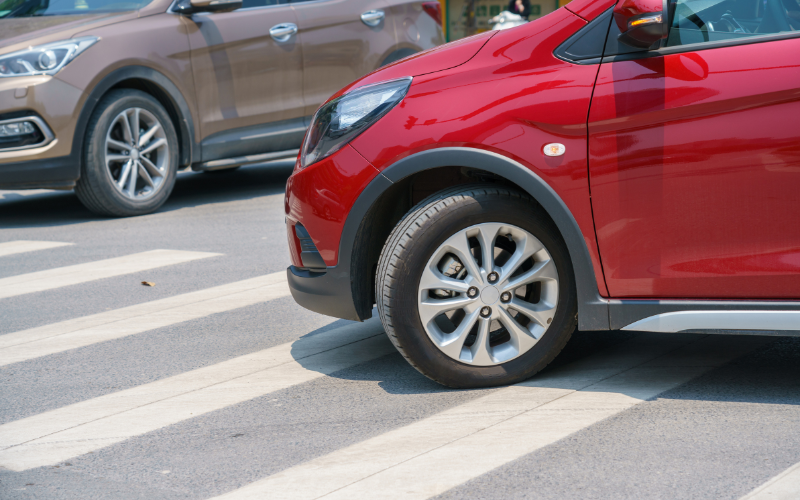
Does your car pull to the side once you apply the brake?
It can happen when your rotor is warped. Replacing the rotor is the ideal solution. We must possess a first mentality. So, whenever you notice a problem in the rotor, replace it to avoid further damage.
Scoring
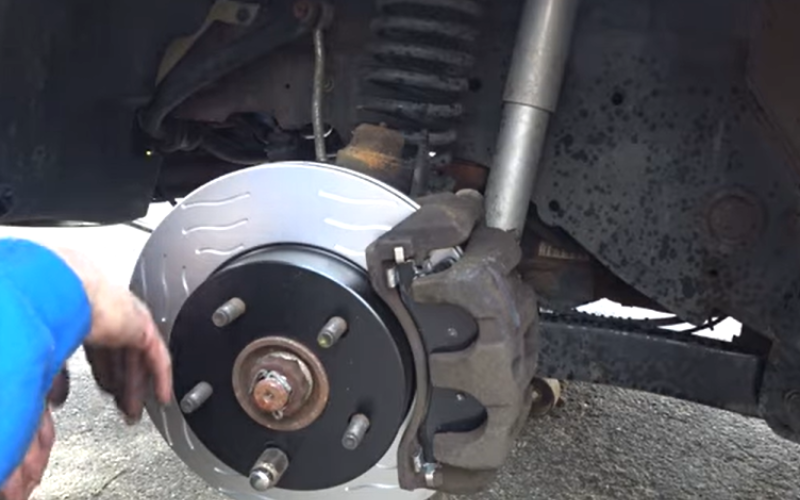
Have you ever thought of checking the condition of your rotors?
Run your fingers over the rotors periodically for deep groves. If you find any, you have worn brake pads. This might cause a grinding sound.
Your brake pads and rotors should be as flat as a stack of pancakes on top of each other! This will ensure proper braking.
Rusting
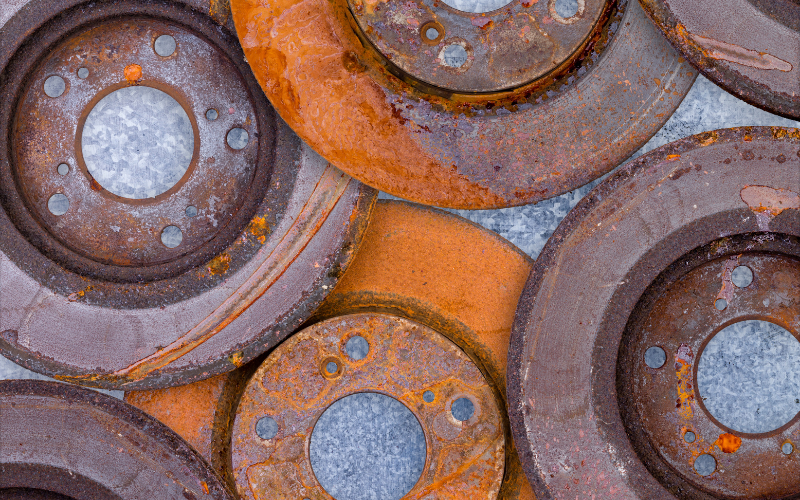
The brake rotor’s condition can be dangerous when rust builds up. Iron content in rotors is high. That is why rust appears when rotors are exposed to moisture for a long time.
A little rust is not a big deal, as it goes away as you drive. But excessive rust must be cleaned.
Choose brake rotors with anti-rust components for the surfaces where the brake pad comes in contact with the rotor. Thus, rusting can easily be avoided.
Longer Braking Distance
Worn brake rotors develop uneven surfaces that reduce the contact area for brake pads. It leads to extended stopping distances for your vehicle.
Shaky Steering Wheel
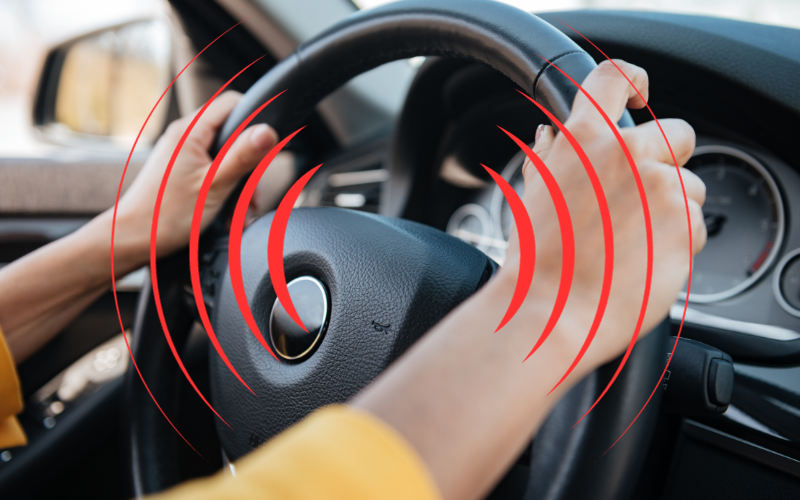
When the front brake rotor is terrible, you will feel a shaky steering wheel. This can happen when there is rust in the rotor. Also, overheating can cause imbalanced braking.
Consider checking the front brake rotor if you see that the steering wheel is shaking when you brake.
Why is Brake Rotor Replacement Crucial?
Replacing damaged brake rotors is crucial. Otherwise, you are risking your life. Here are a few benefits of brake rotor replacement.
Safety
Your vehicle braking efficiency will reduce with the bad rotors. Thus, the risk of an accident increases as the stopping distance gets longer.
Moreover, you may experience potential brake failure. That is why having a well-functional brake rotor is vital for your, your passenger, and other people’s safety.
Brake Performance
Controlling your vehicle will be difficult when the rotor is bad. Moreover, damaged rotors reduce brake performance. So, replace the worn rotors and experience smooth, consistent braking.
Prevent Damaging Other Parts
Uneven wear and tear can appear in the calipers, brake pads, and other parts due to defective rotors.
As a result, you will have to pay extra repair costs to ensure the accuracy of the braking system. You can easily avoid further damage to the braking system components by replacing the bad rotors.
Noise Reduction
As stated, you will hear an unpleasant squeaking grinding noise when braking because of the word rotors. Eliminate the bad noises and enjoy a comfortable driving experience by changing the damaged rotors.
Read Also: A Guide To Replacing Your Vehicle’s Brake Rotors
Improves Fuel Efficiency
Poor braking affects the overall efficiency of your vehicle. On the other hand, better fuel economy is confirmed with efficient braking. Maintaining a good brake rotor improves your vehicle’s fuel efficiency.
FAQs
How long do brake rotors last?
Brake rotors typically last between 30,000 to 70,000 miles (48,000 to 112,000 kilometers), depending on driving habits, road conditions, and maintenance. Aggressive driving and heavy braking can wear them out faster. Careful driving and regular maintenance can extend their lifespan.
What is the replacement cost for brake rotors?
The replacement cost for brake rotors varies widely depending on the vehicle make and model, quality of rotors, and location. On average, expect to pay around $150 to $400 per axle for parts and labor. High-performance or luxury vehicles incur higher costs due to specialized components.
Can I drive with bad rotors?
Driving with bad brake rotors is unsafe. Worn or damaged rotors can compromise braking performance, causing reduced stopping power, vibrations, and potential loss of control. Addressing this issue promptly is crucial for your safety and the safety of others on the road.
Read Also: Brake Pad Rubbing On Rotor While Driving – How To Fix?
Wrapping Up
Hopefully, all your queries regarding how often to replace brake rotors are eliminated.
You’re the one who knows better how secure braking feels in your vehicle. Specific rotor damage can reduce braking performance, necessitating immediate action.
Yet, since rotor wear can also accumulate gradually, it’s crucial to assess them during each service. Also, observe thickness, corrosion, and surface state. Regular maintenance can help you prevent unwanted brake rotor damage.

Meet Zayan, the mechanical genius behind the highly acclaimed brakes problems and solutions website. With over a decade of hands-on experience in the automotive industry, Zayan has become a trusted authority in the realm of brake systems.
His passion for cars, coupled with his expertise in solving complex brake-related issues, has earned him a devoted following of car enthusiasts, mechanics, and everyday drivers seeking reliable guidance.


